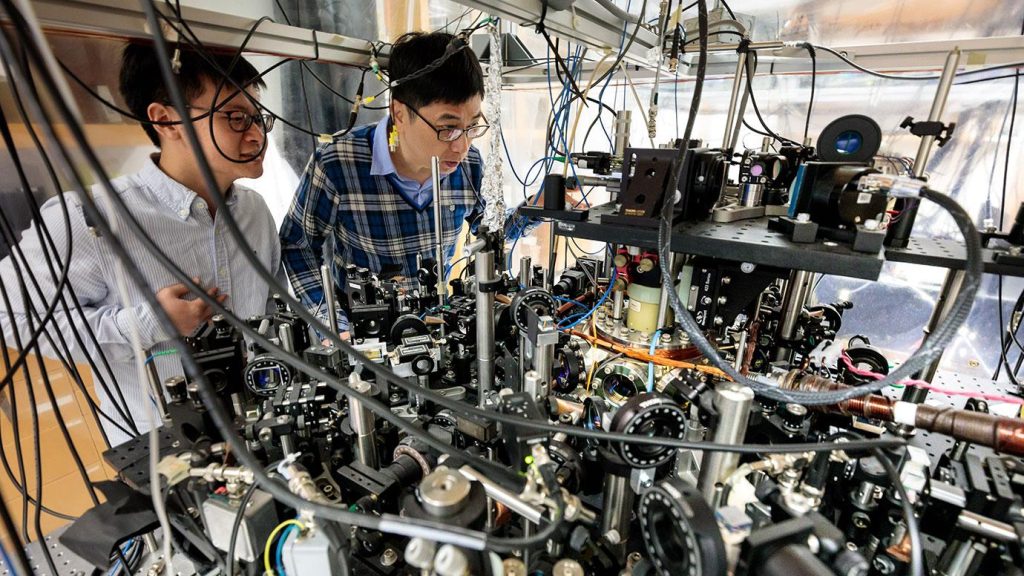
In a new quantum discovery, UChicago researchers have observed, for the first time in history, “quantum superchemistry.”
- During this phenomenon, particles in the same quantum state engage in accelerated collective reactions.
- This observation validates long-standing theoretical predictions and heralding a new era of scientific exploration.
The University of Chicago researchers have observed the first evidence of ‘quantum superchemistry,’ a phenomenon where particles in the same quantum state engage in accelerated collective reactions. This quantum discovery, reported on July 24 in Nature Physics, validates a long-standing theoretical prediction and ushers in a new era of scientific exploration.
Led by Cheng Chin, a professor of physics at the University of Chicago, the team managed to achieve what had been theorized but never demonstrated before—particles reacting together as a unified whole rather than individually during chemical reactions. Their experiment hinged on utilizing ultracold temperatures to manipulate particles, a technique Chin’s lab has mastered over years of research.
At near-absolute zero temperatures, particles can be manipulated into the same quantum state, a condition that fosters unique behaviors and abilities. While atoms had been successfully coerced into quantum states previously, molecules, being larger and more intricate, presented a greater challenge. However, the researchers devised innovative methods to control and maneuver molecules within the quantum state.
The breakthrough experiment involved cooling cesium atoms and inducing them into the same quantum state. The ensuing chemical reactions, contrary to classical chemistry principles, unfolded collectively and at an accelerated pace. Traditional chemistry views reactions as collisions between independent particles, but in this quantum realm, particles act as a unified entity.
“What we saw lined up with the theoretical predictions,” said Cheng Chin, expressing his excitement about achieving this scientific milestone that had been pursued for two decades.
This quantum superchemistry phenomenon has profound implications. Not only do reactions occur faster in this state, but the resulting molecules also share the same molecular state. This control over molecular states opens doors to new possibilities in quantum computing, quantum chemistry, and even fundamental investigations into the laws of the universe.
Shu Nagata, a co-author of the study, noted that the reactions predominantly occurred as three-body interactions, offering insight into the intricate dynamics at play during these collective reactions.
Cheng Chin and his team are already looking to extend their research to more complex molecules, seeking to push the boundaries of quantum engineering and advance our understanding of ultracold chemistry.
The observed coherent and collective chemical reactions in the quantum degenerate regime hold the promise of untangling the interplay between many-body physics and ultracold chemistry, potentially revolutionizing technological applications and our grasp of fundamental scientific principles.
Inside Telecom provides you with an extensive list of content covering all aspects of the tech industry. Keep an eye on our Tech sections to stay informed and up-to-date with our daily articles.